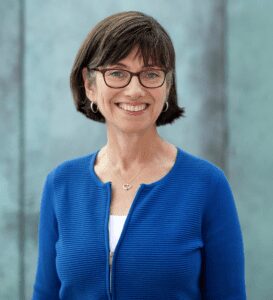Critical FAQs About the Cornell Tech MBA

What is the Cornell Tech MBA program? How do you know if it’s the right program for you? Recently, Adam Gavish, a Cornell Tech MBA alum, wrote about his experience and shared his opinions on LinkedIn. Here’s what he had to say.
What Makes the Cornell Tech MBA Different?
There are four key elements that make the CT MBA different than other programs.

- The Tech Industry: In this MBA program, you’ll get close to the tech industry, meeting and learning from hundreds of industry professionals. You’ll also dive into real-life experiences and learn tools from the tech industry.
- Hands-On Experience: As a Cornell Tech MBA, you’ll design mock UIs, implement proof-of-concept prototypes, conduct user research, explore product ideas, and more.
- Cross-Disciplinary Collabs: You’ll work with students from multiple MBA programs, computer science programs, and more to solve problems.
- Entrepreneurial Focus: From learning how to be a better public speaker to exploring customer empathy, you’ll gain entrepreneurial skills throughout the program.
Where Do Alumni Work?
After graduating with your Cornell Tech MBA, what type of job can you expect? According to Gavish, the program is best for product managers, whether at big or small companies. Alumni go on to work for a wide range of companies including Amazon, BlackRock, eBay, Google, MasterCard, Microsoft, Twitter, the Wall Street Journal, and more.
That doesn’t mean you can’t pursue a career in consulting, sales, or operations with a CT MBA, but you’ll gain the most experience in product management.
What About Post-MBA Recruiting?
When you graduate with a Cornell Tech MBA, you can rest easy knowing that you’ll have plenty of recruiting opportunities. Since the campus is located in New York City, you’ll have physical access to thousands of big tech companies and startups. You’ll also have access to the Cornell network, which is massive and incredibly helpful and giving. Last, but certainly not least, the CT Career Management Center is very well connected.
Risks of a One-Year MBA?
However, if you do decide to pursue the CT MBA, there are a few things to keep in mind.
- There is no summer internship, which can be negative for individuals who have never worked in the tech industry before and need extra experience.
- There’s also very little time to think about your post-MBA career during the program, so you have to plan and plan well.
- When you’re trying to cram full-time learning and course work into just 12 months, you can expect a lot of stress and hard deadlines.
See all that Adam Gavish had to say by checking out his post, here.
This article has been edited and republished with permissions from its original source, Clear Admit.
5 Questions with the Senior Associate Dean of MBA Programs at BU Questrom

In our latest installment of the MetroMBA “5 Questions” series, we speak with Barbara Bickart, the Senior Associate Dean of MBA Programs at Boston University’s Questrom School of Business. Bickart talks about the qualities MBA candidates possess, unique opportunities for MBA students, and things to do in Boston.
1. Why should an MBA candidate be excited to apply to Questrom?
“I believe three main factors make our program unique.
First, Questrom has a strategic focus on three sectors that we have identified as drivers of growth in our economy—digital technology, health, and social impact. We have developed unique program offerings as well as vibrant communities around these three sectors, and many of our students participate in one of these programs.
Second, our program is designed so that students can obtain a deep base of functional knowledge and key skills, and start their elective courses in the first year. Our first year is divided into four, seven-week modules. In the first three modules, students take three classes and complete an integrated experiential project. For example, in Mod 3, students take Strategy, Information Systems, and Organizational Behavior while working on a client-based project that addresses strategic issues in one of our three sectors. Through this process, students learn to view and solve problems from a multi-disciplinary perspective. Students can start taking elective courses during Mod 4.

Barbara Bickart is an Associate Professor of Marketing and Senior Associate Dean for MBA Programs.
Finally, Boston is a great place for students studying business, with a vibrant culture around innovation and technology. Our project-based learning draws on the Boston eco-system, and many of our students end up working in Boston or the immediate area.”
2. What type of MBA candidate is the best fit for Questrom?
“Our students come from a variety of backgrounds and experiences. In addition to being smart, intellectually curious, and engaged, the two traits that I would say best characterize our students are that (a) they care about community and the impact of their work on society and (b) they are agile and creative—they are flexible in how they think about and solve problems and look outside the box for solutions.”
3. How does Questrom stay on the cutting edge of MBA education? Is there a unique feature you can highlight?
“We are constantly evaluating and updating our curriculum, with a particular focus on adding more experiential learning opportunities in our courses and co-curricular experiences. Our faculty’s research often drives our elective courses. For example, one of our most popular elective courses is Platform Strategy. This course was developed by Professor Marshall Van Alstyne and is based on his book Platform Revolution: How Networked Markets are Transforming the Economy and How to Make the Work for You (2016, W.W. Norton and Co). In this course, student teams work on consulting projects for major platform-based companies. Past projects have been sponsored by Airbnb, Allstate, Capgemini, eBay, edX, Jawbone, Haier, Huawei, Mahindra, Pearson, PGA, PTC, Siemens, SAP, startups, and many others.”
4. What unique opportunities outside of the MBA curriculum make Questrom stand out?
“Our student community is active and engaged—there is always something going on here at Questrom. Students take advantage of the Boston ecosystem—attending networking events and conferences, for example, in health and life sciences. Questrom students are also involved Innovate@BU, which is a BU-wide initiative supporting student-led innovation and entrepreneurial activities. Students take advantage of the Build Lab IDG Capital Student Innovation Center, which is an on-campus co-working space for collaboration and new ventures. The Questrom School of Business Internship Fund provides financial support our students interested in exploring internships at not-for-profits. Finally, we offer a number to global learning opportunities, both in our curriculum and via student-run trips. Groups travel to Paris to study luxury marketing, South Africa to study social impact, Israel to study entrepreneurship, Vietnam to study manufacturing, and Silicon Valley to learn more about digital technology.”

“The views of Cambridge and Boston are amazing. I particularly love walking along the Charles during the Head of the Charles rowing races in October,” Bickart says.
5. What’s your favorite activity in Boston? Why?
“My favorite activity in Boston is to walk along paths on the Charles River. From my office, it takes just a few minutes to get to this path. The views of Cambridge and Boston are amazing. I particularly love walking along the Charles during the Head of the Charles rowing races in October. The races are exciting and fun to watch, and there is a lot of energy in the crowd.”
MBA Alumni Spotlight: HP CEO Meg Whitman

Meg Whitman has been slaying the business world one corporation at a time. She’s the true definition of a businesswoman who doesn’t play when it comes to her money—and success. She’s currently reigning over Hewlett-Packard Enterprise, but she’s been building her empire for more than 20 years.
And she’s not done.
The CEO of Hewlett-Packard Enterprise set her expectations high from the start. Raised in the wealthy suburbs of Oyster Bay, New York, on Long Island, Whitman has ties to Boston’s elite, reports Business Insider. She eventually left the nest to study at Princeton University. While she initially had interests in medicine, Whitman changed her major to economics, eventually going on to receive her MBA at Harvard Business School.
Her first major gig landed her in Cincinnati in the late ’70s when she joined P&G, a consumer goods corporation. That’s where her feminist leanings truly began to reveal themselves. Whitman learned that the company refused to give female employees company credit cards because it didn’t find it safe for women to travel alone, as Business Insider describes. The lady boss got the company to change that policy. She continues to influence the corporation through its board, on which she sits.
READ MORE: “Top MBA Recruiters: Hewlett-Packard”
From there, it was a wrap. Whitman went on to work for major toy company Hasbro, where she was in charge of the famous Mr. Potato Head, as well as bringing Teletubbies to U.S television. Where Whitman left one of her greatest marks, however, was online retailer eBay. In 10 years, she helped increase the company’s revenue from $4 million to $8 billion, and its employee numbers grew from 30 to 15,000, creating one of the most massive and quick corporate turnarounds in recent memory.
Her hard work there paid off. She moved on to become CEO of Hewlett-Packard in 2011, where she’s transformed the company and even separated it into two entities: Hewlett-Packard Enterprise and HP Inc. That’s where she plans to stay—even amid offers from places like like hyper-valued ride sharing startup Uber. The company was seeking a new CEO, preferably a woman, but she wasn’t interested.
Her time at Hewlett-Packard hasn’t been all sunshine though. She took her role as CEO during turbulent times and was forced to do massive layoffs to salvage the company. The layoffs began in 2012 and continued well into 2015. But making tough decisions is part of what makes Whitman a great leader—at least, in the business world.
Whitman ran for governor of California as a Republican in 2010. Though current politics might show that some people value a leader with a business background Whitman ultimately lost to current Governor Jerry Brown.
Politics may not be her game, but her place in business is abundantly secure. In 2015, she was named 7th overall on Fortune‘s list of highest paid women and 7th on its list of most powerful women. She kept the latter title last year too—and moved up the list when it came to her income. Whitman’s success highlights how far an MBA can take someone, especially women, who aren’t always as welcome in the business world as some of their male colleagues.
New Sloan Executive Course Finds Ways To Maximize Your Platform Strategy

The MIT Sloan Newsroom recently dove into a new Sloan executive course that gives platform entrepreneurs strategies and tools to effectively “tackle the challenges of value creation and capture.”
Leavey’s Conscientious Capitalism Initiative Helps Students Become Accountable Leaders

Starting this month, the Santa Clara’s Leavey School of Business launched its Conscientious Capitalism Initiative, a dynamic new venture for students to glean lessons about applying “personal virtues and purpose” within leadership roles.
Former eBay CEO Talks Work-Life Balance at Stanford

Stanford’s Graduate School of Business recently published an article about a keynote lecture from retired eBay and Bain CEO John Donahoe ’86 presented.
